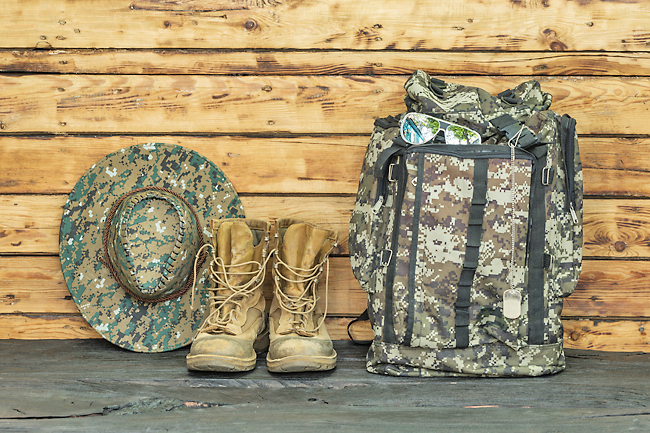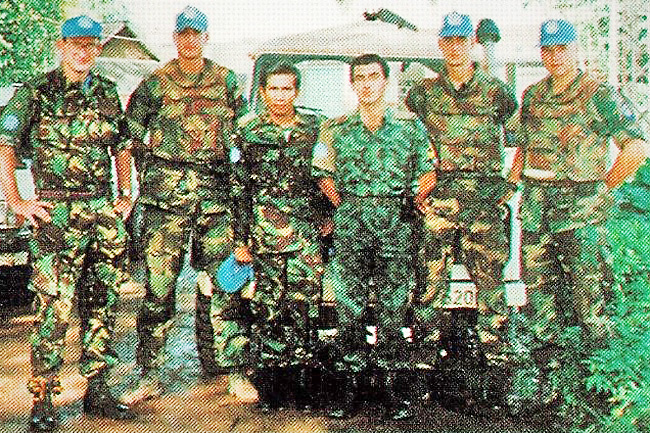Contributed by the Ministry of Defence
After gaining independence in 1984, the Royal Brunei Armed Forces (RBAF), known then as the Royal Brunei Malay Regiment comprising 60 recruits, provided basic defence for the Sultanate’s national security.
As decades passed, the RBAF endeavoured to expand its role to address evolving and complex defence and security threats by ensuring their readiness and preparedness to deliver operations in ensuring the country’s peace and stability as well as her regional surroundings. To do so, the RBAF recognised the importance to build up its experiences in overseas missions, operating together with other armed forces from all parts of the world.
Today, the RBAF is reputed as a credible defence force of a sovereign nation capable of contributing to regional and global efforts in promoting peace, security and stability amidst common security threats that are transnational in nature and in a complex strategic environment.
The RBAF’s commitment to progressively develop itself into a credible and trusted organisation to its regional and international partners continues to remain, as articulated in the Brunei Darussalam’s Defence White Paper 2021 that was launched during the RBAF’s Diamond Jubilee last May.
The year 1992 was a historic milestone for the RBAF as it marked the beginning of Brunei’s participation in international peacekeeping missions. Accordingly, three RBAF officers, Major Haji Shahrin bin Haji Shahbudin, Major Pengiran Haji Rosli bin Pengiran Haji Chuchu and Captain Zainal Ariffin bin Zainuddin, from the Royal Brunei Land Force, were deployed as military observers on the RBAF’s debut mission in the United Nations Transitional Authority in Cambodia (UNTAC) from November 19, 1992 to October 13, 1993, along with 12 personnel from the Royal Brunei Police Force (RBPF) as representatives from Brunei Darussalam. The three officers from the RBAF were assigned to different areas of operations, including Kampong Cham, Siem Reap and Kampong Thom.


During an interview with then Major Pengiran Haji Rosli bin Pengiran Haji Chuchu, now Colonel (Rtd) Pengiran Dato Paduka Haji Rosli, he recalled his year as a United Nations Military Observer (UNMO) in Siem Reap, Cambodia.
He was attached to Sector Monitoring Team (SMT) called Team 202 Ank Chum Pourk that included officers and civil-police (CivPol) officers from other UN member countries, as well as a local interpreter. They were responsible for patrolling the villages and reporting on any suspicious activity or conflict that occurs in the region. On election day, he was appointed as a District Electoral Supervisor, where his team was responsible for ensuring the polling stations were safe for local residents.
One unforgettable experience occurred when he, two other UN military officers and their interpreter were ambushed during a routine patrol by Khmer Rogues guerillas and had their vehicles and equipment taken from them.
UNTAC’s objectives were to “supervise the ceasefire, the end of foreign military assistance and the withdrawal of foreign forces; regroup, canton and disarm all armed forces of the Cambodian parties; and ensure 70 per cent demobilisation; control and supervise the administrative structures, including the police; ensure and respect for human rights, and organise and conduct free and fair elections”.
RBAF officers, RBPF personnel and contingents from other nations took to task in achieving the objectives of UNTAC. Throughout the mission, UNTAC saw the participation of over 21,000 military and civilian personnel from more than 100 countries.
The success of its inaugural overseas mission became a precursor for the RBAF to increase its participation in other missions. In addition, it marked the country’s commitment to further enhancing regional and international security.
The commitment can be seen through its involvement in various missions, regionally and internationally, including RBAF’s active participation in the International Monitoring Team (IMT) in the Philippines since 2004, the UN Interim Force in Lebanon (UNIFIL) since 2008, and the Command Watch Captain at Combined Task Force 151, the Gulf of Aden since 2010. Besides that, the RBAF also supported the work of the Independent Decommissioning Body Verification, Monitoring and Assistance Team (IDB-VMAT) in Mindanao, the Philippines, since 2019.
The RBAF has also stationed personnel at various regional centres established by Singapore. These centres include the Information Fusion Centre (IFC) in 2013, the Regional Humanitarian Assistance and Disaster Relief Coordination Centre (RHCC) in 2015, and the Counter-Terrorism Information Facility (CTIF) in early 2021.
The inaugural RBAF peacekeeping mission in 1992 paved the way for more opportunities to deepen and broaden cooperation. It also cemented international recognition in Brunei Darussalam’s ability to perform various monitoring and peacekeeping duties. These achievements undoubtedly projected the Sultanate in the international arena and have profoundly bolstered the RBAF’s image in promoting regional and global peace maintenance.


